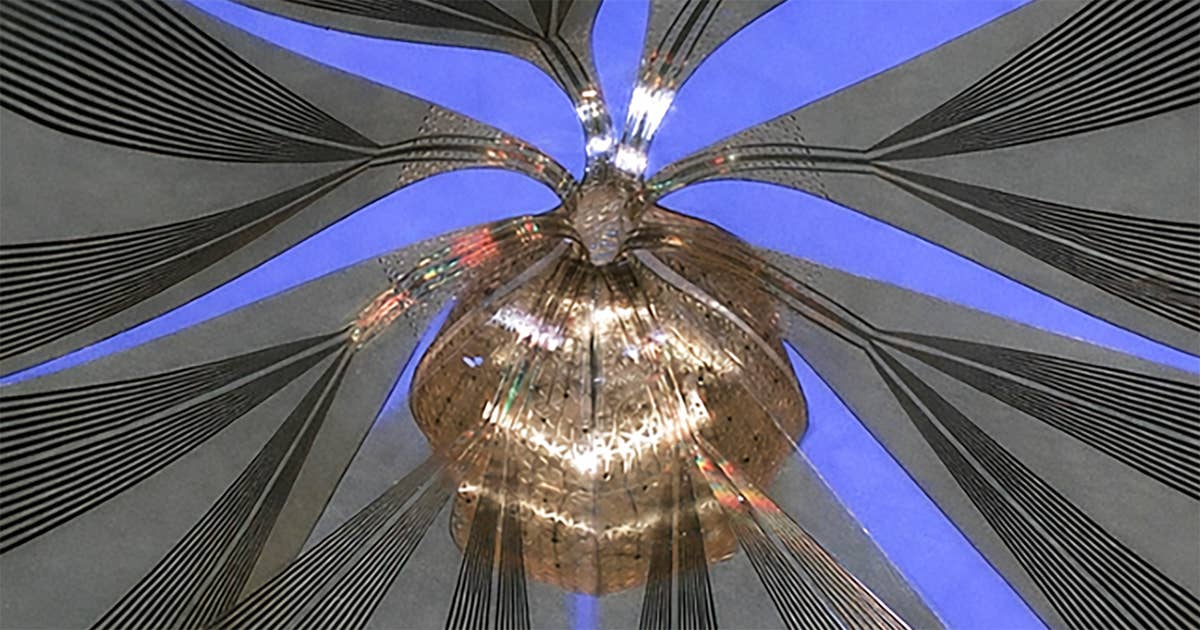This Week’s Awesome Tech Stories From Around the Web (Through February 18)

Share
ARTIFICIAL INTELLIGENCE
AI Is Dreaming Up Drugs That No One Has Ever Seen. Now We’ve Got to See if They Work.
Will Douglas Heaven | MIT Technology Review
"There are now hundreds of startups exploring the use of machine learning in the pharmaceutical industry, says Nathan Benaich at Air Street Capital, a VC firm that invests in biotech and life sciences companies: 'Early signs were exciting enough to attract big money.' Today, on average, it takes more than 10 years and billions of dollars to develop a new drug. The vision is to use AI to make drug discovery faster and cheaper."
AUTOMATION
The US Air Force Successfully Tested This AI-Controlled Jet Fighter
Jonathan Gitlin | Ars Technica
"An autonomous jet fighter has now completed 17 hours of flight testing, including advanced fighter maneuvers and beyond-visual-range engagements, according to the United States Air Force. ...'We conducted multiple sorties [takeoffs and landings] with numerous test points performed on each sortie to test the algorithms under varying starting conditions, against various simulated adversaries, and with simulated weapons capabilities,' said Air Force Lt. Col. Ryan 'Hal' Hefron, the DARPA program manager for ACE."
ARTIFICIAL INTELLIGENCE
Introducing the AI Mirror Test, Which Very Smart People Keep Failing
James Vincent | The Verge
"In behavioral psychology, the mirror test is designed to discover animals’ capacity for self-awareness. There are a few variations of the test, but the essence is always the same: do animals recognize themselves in the mirror or think it’s another being altogether? Right now, humanity is being presented with its own mirror test thanks to the expanding capabilities of AI—and a lot of otherwise smart people are failing it."
ENVIRONMENT
MIT Team Makes a Case for Direct Carbon Capture From Seawater, Not Air
Loz Blain | New Atlas
"As atmospheric carbon concentrations rise, carbon dioxide begins to dissolve into seawater. The ocean currently soaks up some 30-40% of all humanity's annual carbon emissions, and maintains a constant free exchange with the air. Suck the carbon out of the seawater, and it'll suck more out of the air to re-balance the concentrations. Best of all, the concentration of carbon dioxide in seawater is more than 100 times greater than in air."
3D PRINTING
This Startup Can 3D Print a Battery Into Any Shape You Want
Adele Peters | Fast Company
"The technique, which prints using thin layers of powder, can change what the batteries look like—imagine an e-bike battery that curves to fit the frame of a bike, or a cellphone battery that’s shaped to fill every gap around the circuit board, making the phone last longer before it needs another charge. But 3D printing also enables what’s often called the holy grail of the industry: Solid-state batteries."
Be Part of the Future
Sign up to receive top stories about groundbreaking technologies and visionary thinkers from SingularityHub.


VIRTUAL REALITY
Welcome to the Oldest Part of the Metaverse
John-Clark Levin | MIT Technology Review
"Today’s headlines treat the metaverse as a hazy dream yet to be built, but if it’s defined as a network of virtual worlds we can inhabit, its oldest extant corner has been already running for 25 years. It’s a medieval fantasy kingdom created for the online role-playing game Ultima Online—and it has already endured a quarter-century of market competition, economic turmoil, and political strife. So what can this game and its players tell us about creating the virtual worlds of the future?"
SCIENCE
Can Black Holes Really Cause Dark Energy?
Ethan Siegel | Big Think
"One of the greatest mysteries in the universe is that of the accelerated expansion of the cosmos, often described as an unknown form of energy dubbed 'dark energy.' While many potential explanations have been offered for why dark energy exists, no one has yet been able to calculate its value, or offer a compelling reason for why it possesses the value it does. In a brand new study put forth in February of 2023, a team of scientists put forth the idea, backed by some very suggestive evidence, that black holes might be the culprit. How does the idea stack up?"
CRYPTOCURRENCY
Confusion Spirals in Crypto as the US Cracks Down
Joel Khalili | Wired
"[Last] weekend, The Wall Street Journal reported that the agency intends to sue crypto firm Paxos for issuing BUSD, a stablecoin developed in partnership with the world’s largest crypto exchange, Binance. ...The concern is that a ruling against the issuing or use of BUSD will set a precedent that could be applied to all stablecoins, striking down a crucial piece of infrastructure in many crypto markets. 'If the supply suddenly dried up, the crypto economy would collapse,' says economist Frances Coppola, who previously worked for HSBC and other banks."
BIOTECH
For the First Time, Genetically Modified Trees Have Been Planted in a US Forest
Gabriel Popkin | The New York Times
"On Monday, in a low-lying tract of southern Georgia’s pine belt, a half-dozen workers planted row upon row of twig-like poplar trees. These weren’t just any trees, though: Some of the seedlings being nestled into the soggy soil had been genetically engineered to grow wood at turbocharged rates while slurping up carbon dioxide from the air. ...Living Carbon, a San Francisco-based biotechnology company that produced the poplars, intends for its trees to be a large-scale solution to climate change."
Related Articles

New Device Detects Brain Waves in Mini Brains Mimicking Early Human Development

This Week’s Awesome Tech Stories From Around the Web (Through February 28)

Sparks of Genius to Flashes of Idiocy: How to Solve AI’s ‘Jagged Intelligence’ Problem
What we’re reading
